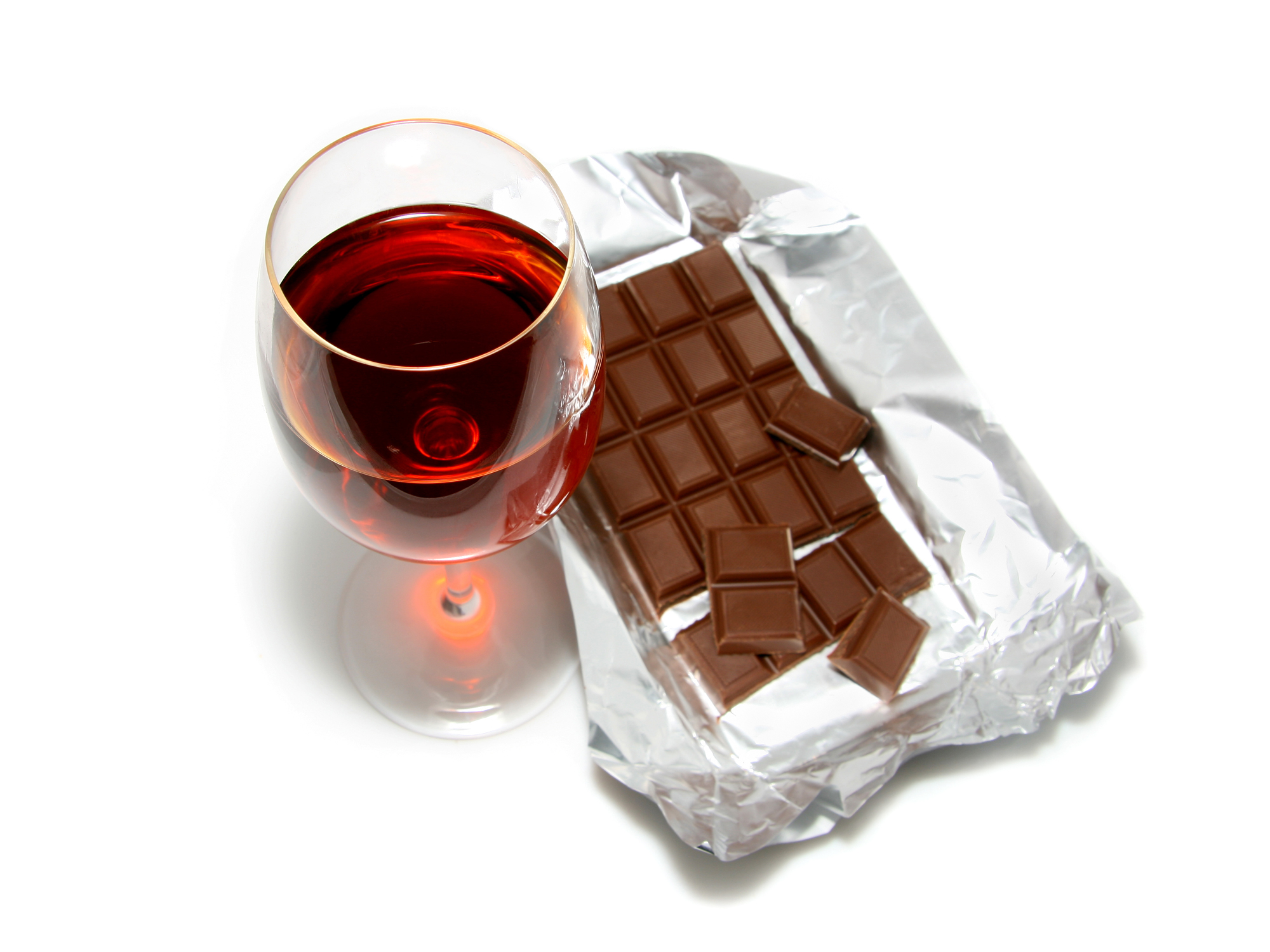Get Easy Health Digest™ in your inbox and don’t miss a thing when you subscribe today. Plus, get the free bonus report, Mother Nature’s Tips, Tricks and Remedies for Cholesterol, Blood Pressure & Blood Sugar as my way of saying welcome to the community!
Drink wine and eat chocolate to see better

If you want a good excuse to enjoy your glass of red wine with dinner, you’ve now got one — it may improve your vision!
Age-related macular degeneration is the leading cause of vision loss, followed by cataracts, diabetic retinopathy and glaucoma.
The key to red wine’s benefits for eye health lies in a beneficial compound called resveratrol…
This polyphenol naturally occurs in grapes, and therefore, in red wine as well. Your choice of red wine will determine how much resveratrol you consume — merlot (14.3 mg per 5 ounce glass) and pinot noir (11.9 mg) provide the highest amounts; followed by cabernet sauvignon (9.3 mg) and shiraz (a minimal 3.2 mg).
Resveratrol can also be found in other decadent foods such as dark chocolate, cocoa, blueberries, cranberries, peanuts and pistachios.
And overall, resveratrol stacks up to be a very potent antioxidant, anti-tumor and anti-inflammatory agent, with some seriously powerful benefits for your vision…
In fact, scientists have only recently discovered that resveratrol has the ability to both protect the blood-ocular barrier and cross the two eye barriers to directly influence the eye tissues.
This is a revolutionary discovery because the eyes contain very tightly packed cells with the smallest blood vessels, so many molecules and compounds simply can’t get past these protective barriers.
Since your eyes are a highly vascular organ, one of resveratrol’s main mechanisms for promoting eye health is its relaxing effect on the vascular system.
As you’re enjoying your glass of red wine (or indulging in dark chocolate), the resveratrol compounds make their way to your eye tissue quite quickly. From there the compounds dilate the blood vessels at the back of the eye, and improve ocular blood circulation.
Resveratrol can also protect the retina against toxic blue-light damage, protect the optic nerve, and prevent the formation of abnormal blood vessels at the back of the eye.
What this means is that resveratrol is a powerful protective agent to prevent all those nasty vision problems occurring. More than this, researchers suggest it’s also incredibly useful to treat eye conditions.
It even goes so far as treating ocular tumors and restoring vision in patients with treatment-resistant macular degeneration.
All you have to do is indulge in a few decadent foods each day!
But, if red wine and dark chocolate really don’t tickle your fancy, you can also purchase resveratrol supplements, which have been shown to be effective as well.
Editor’s note: Have you heard of EDTA chelation therapy? It was developed originally to remove lead and other contaminants, including heavy metals, from the body. Its uses now run the gamut from varicose veins to circulation. Click here to discover Chelation: Natural Miracle for Protecting Your Heart and Enhancing Your Health!
Sources:
-
Kang JH, et al. Protective effects of resveratrol and its analogs on age-related macular degeneration in vitro. — Archives of Pharmaceutical Research. 2016;32(12):1703-1715.
-
Lindsey JD, et al. Protection of injured retinal ganglion cell dendrites and unfolded protein response resolution after long-term dietary resveratrol. — Neurobiology of Aging. 2015;36(5):1969-1981.
-
Richer S, et al. Resveratrol based oral nutritional supplement produces long-term benefits on structure and visual function in human patients. — Nutrients. 2014;6(10):4404-4420.
-
Wang S, et al. Effect of Resveratrol-Based Nutritional Supplement on Choroidal Thickness: A Pilot Study. — Current Eye Research. 2016;41(10):1339-1345.













